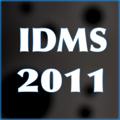Speaker
Alejandro Ibarra
Description
Present evidence for dark matter in our Galaxy and in the Universe at large does not
exclude the possibility that the dark matter particles could be unstable. If this is the case,
their decays into positrons, antiprotons or gamma rays might occur at rate sufficiently large to allow indirect dark matter detection through an anomalous contribution to the high-energy cosmic-ray fluxes. In this talk we review the theoretical motivation to consider unstable dark matter particles and the experimental constraints on this scenario.

